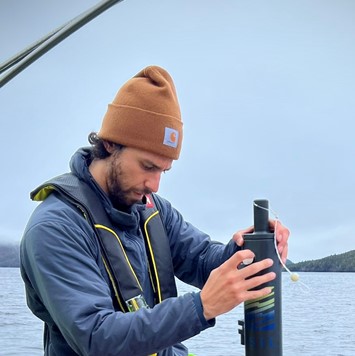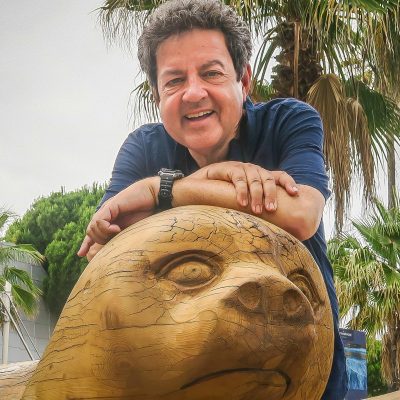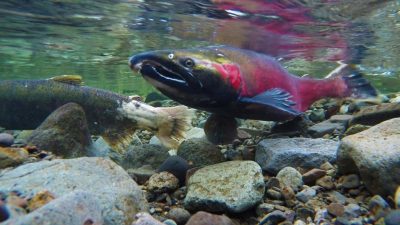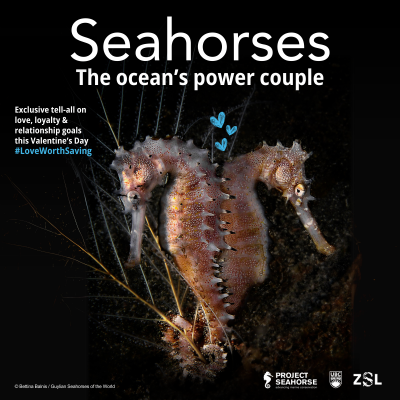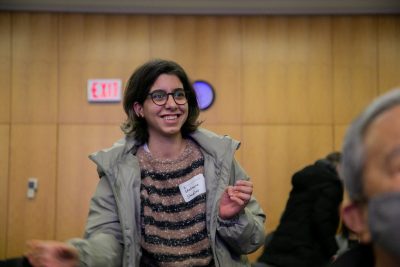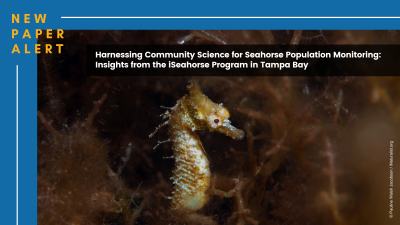Our Extended Learning Introduction to Aquatic Data Sciences course starts on April 9
Introduction to Aquatic Data Sciences is designed for professionals and researchers passionate about oceans, fisheries, and sustainable development. Learn more about course, certificate and bursary option here.
Student Profile: Alex (Alejandro) Schmill
Alejandro (Alex) Schmill is a first-year MSc student, co-supervised by Dr. William Cheung and Dr. Margot Hessing-Lewis of the Hakai Institute.
Questions about whales, seals, sea lions, or other marine mammals? Dr. Andrew Trites is your ‘go-to’ guy.
Dr. Andrew Trites has won UBC’s President’s Award for Public Education through Media.
Faculty members receive King Charles III Commemoration Medals
Dr. Rashid Sumaila and Dr. Andrew Trites received King Charles III Commemoration Medals.
Hindcasting the Salish Sea reveals long-term patterns of environmental change
Greig Oldford, PhD Candidate at the University of British Columbia’s Institute for the Oceans and Fisheries (IOF) recently co-developed The Hindcast of the Salish Sea (HOTSSea) to address gaps in historical observations.
Seahorses: The Ocean’s Power Couple
This Valentine’s Day, let’s dive into one of our ocean’s most enchanting love stories—about seahorses. These little romantics don’t just capture our hearts with their quirky looks; they also teach us powerful lessons about loyalty, partnership, and shared responsibility.
Student Profile: Shabnam Shadloo
Shabnam is a third-year PhD student at the Institute for the Oceans and Fisheries (IOF) under the supervision of Marie Auger-Méthé. Her research focuses on the movement ecology, behaviour, and disease dynamics of Larus glaucescens (glaucous-winged gulls) within coastal and urban environments.
Project Seahorse’s new study highlights the value of community science for seahorse monitoring and conservation
“Harnessing Community Science for Seahorse Population Monitoring: Insights from the iSeahorse Program in Tampa Bay” was published in Aquatic Conservation: Marine and Freshwater Ecosystems. The study showcases the important role of community science in monitoring seahorse populations to support conservation efforts.
Sumaila-Volvo Graduate Prize in Environmental Sustainability winners announced
Congratulations to Verena Rossa-Roccor (IRES) and Aleah Wong (IOF), winners of the 2025 Sumaila-Volvo Graduate Prize in Environmental Sustainability.
Student Profile: Anna-Luna Rossi
Anna is a second-year PhD student at the Institute for the Oceans and Fisheries under the supervision of Daniel Pauly. Her research focuses on understanding the fisheries and their impact on the marine ecosystem in the archipelago of Saint Pierre and Miquelon to infer relevant fishery regulations.
